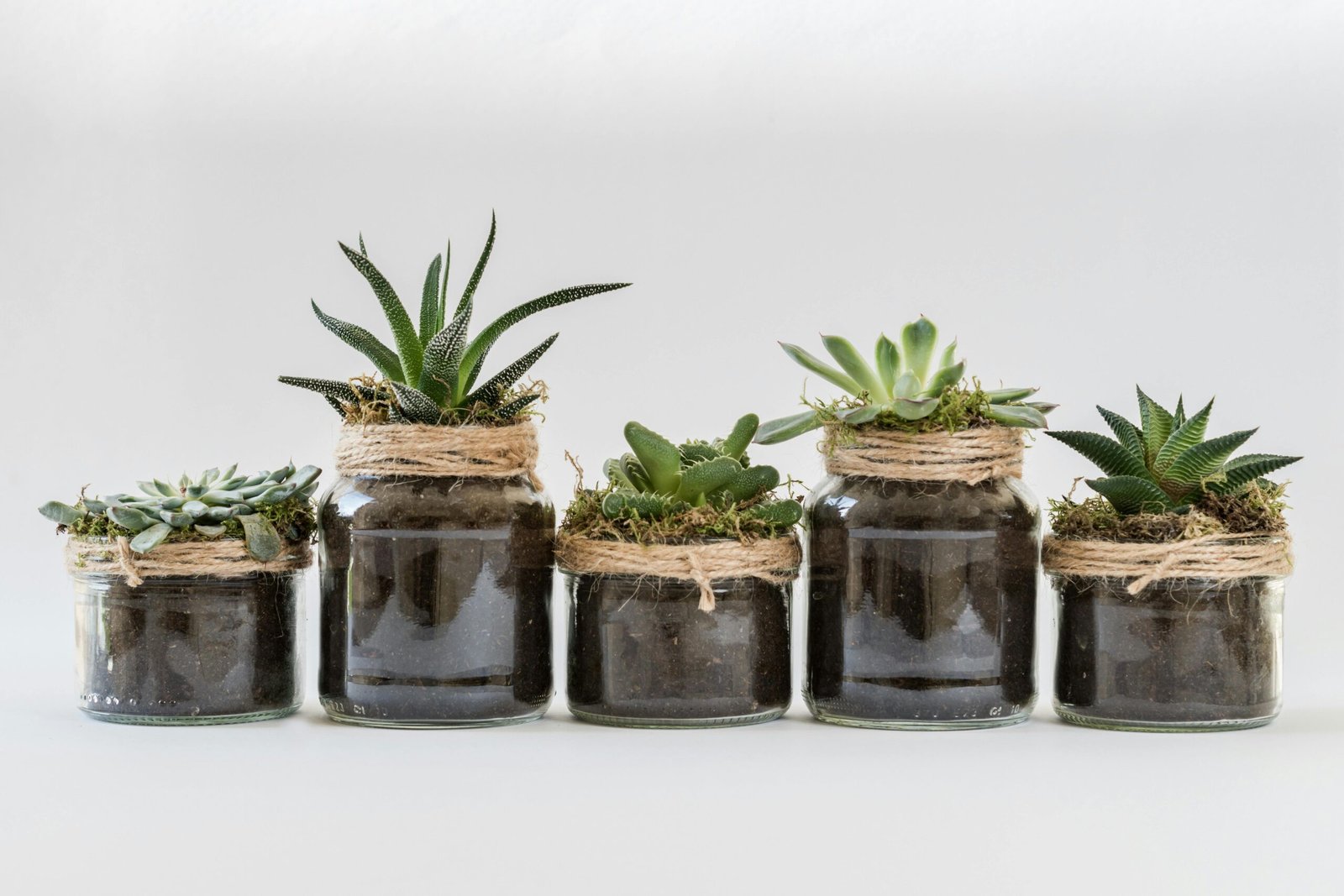10 Impactful Benefits of Indoor Plants for Sustainable Living

Introduction:
Indoor plants are more than just decorative elements in your home—they’re a powerful tool for promoting a sustainable and healthy living environment. As we strive for greener lifestyles, plants offer a natural and cost-effective way to improve air quality, reduce stress, and even lower energy consumption. From purifying the air by absorbing harmful toxins to creating a tranquil ambiance that enhances your well-being, the benefits of indoor plants extend far beyond their beauty.
In this post, we’ll explore how incorporating indoor plants into your home can contribute to a more sustainable lifestyle. Whether you’re a plant enthusiast or new to the world of indoor plants, you’ll discover practical tips for choosing the best indoor plants, caring for them, and maximizing their positive impact on both your environment and your health. By adding more indoor plants to your space, you’re creating a greener, more eco-friendly haven. Get ready to transform your living space into a vibrant and sustainable environment, all with the help of indoor plants!

1. Improved Air Quality
Plants are remarkable natural air purifiers, absorbing carbon dioxide and releasing fresh oxygen through photosynthesis. This process is essential for maintaining clean and breathable air indoors. They also filter out harmful chemicals like benzene, formaldehyde, and trichloroethylene, which are commonly found in household products like cleaning agents, paints, and furniture. As a result, placing a few plants around your home can lead to a noticeable improvement in air quality. NASA’s Clean Air Study has long demonstrated the power of indoor plants in purifying indoor spaces.
Common indoor plants like spider plants, peace lilies, and snake plants are especially effective at removing toxic air pollutants, leaving your home feeling fresh and healthy.
By incorporating more plants into your indoor environment, you not only improve the air quality but also create a more sustainable and eco-friendly living space. The benefits of indoor plants go beyond air purification—they also enhance your mental well-being and add natural beauty to your home.
2. Reduced Stress and Anxiety
The soothing effect of greenery on the human psyche is well-documented. Research has shown that the presence of plants in indoor spaces can help reduce stress levels and promote a sense of calm. One study, published in the Journal of Physiological Anthropology, found that participants who interacted with plants had a significantly lower heart rate and blood pressure, indicators of stress reduction.
Just being around plants, or even caring for them, can have an immediate calming effect. This is why you’ll often see plants incorporated into therapeutic spaces like offices, schools, and healthcare facilities. Lavender and aloe vera, for example, are particularly noted for their calming properties, making them ideal choices for bedrooms or spaces where relaxation is needed.
3. Boosted Productivity and Concentration
Adding plants to your home office or workspace can significantly improve productivity and focus. Studies, including one from the University of Queensland, found that employees working in environments with plants reported higher levels of concentration, creativity, and job satisfaction.
This is largely due to plants’ ability to reduce mental fatigue and enhance cognitive function. Plants create an environment that encourages focus, inspiration, and concentration. Even simple additions like succulents or small indoor trees can help keep your workspace energizing and stimulating. If you work in a home office or study regularly, having plants nearby can create a more motivating atmosphere, increasing your productivity.
4. Enhanced Mood and Mental Well-being
The impact of plants on mental well-being goes beyond reducing stress and anxiety. Numerous studies have shown that plants can improve overall mood and feelings of happiness. Being around plants can trigger positive emotions and increase feelings of satisfaction with your environment.
In fact, studies show that individuals who have plants in their homes report feeling happier and more content with their living spaces. The act of caring for plants also provides a sense of purpose and accomplishment, which can be incredibly fulfilling. Over time, as plants thrive under your care, you’ll begin to feel a deeper connection to nature, improving your emotional well-being and creating a nurturing atmosphere in your home.
5. Humidity Control
Plants are natural humidifiers. As part of the process of transpiration, plants absorb water through their roots and release moisture into the air through tiny pores in their leaves. This helps to maintain a comfortable level of humidity, especially during the dry winter months when indoor heating can lower humidity levels. Maintaining adequate humidity levels in your home is important for preventing dry skin, respiratory issues, and static electricity.
Ferns, peace lilies, and bamboo palms are particularly good at adding moisture to the air, making them excellent choices for homes located in dry climates or places with fluctuating humidity levels. Not only do they improve the comfort of your living environment, but they also help protect your skin and respiratory system.
6. Noise Reduction
Plants can also serve as a natural sound barrier, helping to reduce noise in your home. The leaves and stems of plants absorb, deflect, or refract sound, which can help reduce overall noise levels. This is especially helpful in urban environments or apartments where noise from traffic, neighbors, and other external sources can be disruptive. Placing plants in strategic spots around your home—such as along walls or in corners—can reduce the amount of noise that enters or reverberates throughout a space. Plants not only help absorb sound but also create a more serene atmosphere by dampening the noise that often contributes to stress. Larger, bushy plants like rubber plants or monstera are particularly effective at sound absorption.
7. Increased Property Value
Adding indoor plants to your home can make your property more attractive to potential buyers, which can ultimately increase its market value. A well-decorated home with abundant greenery often feels more inviting, vibrant, and healthier, which can leave a lasting impression on potential buyers. This is particularly important in the competitive housing market, where the aesthetics of a home can play a large role in the decision-making process. Additionally, plants are an affordable and effective way to enhance a home’s appearance without the need for expensive renovations. Well-placed plants in common areas, kitchens, and bathrooms can significantly improve a home’s appeal, making it stand out from other properties on the market.
8. Natural Pest Control
Many indoor plants can also help control pests naturally, reducing the need for chemical insecticides. Plants like citronella, basil, mint, and lavender are known for their ability to repel insects such as mosquitoes, flies, and ants. By incorporating these plants into your home, you can keep pests at bay without resorting to harmful chemicals. These plants release natural oils that repel insects and are particularly useful in areas where pests are most likely to gather, such as kitchens or patios. Not only do these plants reduce your reliance on chemical pesticides, but they also add aromatic benefits and a fresh, natural scent to your home.
9. Improved Sleep Quality
Certain plants have properties that promote better sleep, and incorporating them into your bedroom can help you enjoy a more restful night. For example, lavender is renowned for its calming, sleep-promoting qualities. Studies have shown that the scent of lavender can reduce anxiety and promote relaxation, which can lead to improved sleep quality. Snake plants and peace lilies are also excellent bedroom companions as they release oxygen at night, which can help improve the quality of your sleep. The calming atmosphere created by plants, combined with their natural benefits, ensures that your bedroom becomes a sanctuary of tranquility, helping you wind down and get a better night’s sleep.
10. Sustainable Living
Bringing indoor plants into your home is a simple yet effective way to embrace sustainable living. By growing plants indoors, you can reduce your reliance on packaged produce, which helps minimize waste and your carbon footprint. Indoor gardening also allows you to grow your own herbs, vegetables, and even fruits, contributing to a more sustainable and self-sufficient lifestyle. In addition, plants are biodegradable, meaning they can be composted when they eventually reach the end of their life cycle, unlike synthetic materials that contribute to landfill waste. Growing plants also fosters an appreciation for nature, encouraging more mindful consumption and a stronger connection to the environment.

Conclusion:
Indoor plants offer far more than just visual appeal—they have a profound impact on the environment and your well-being. From purifying the air and reducing stress to improving productivity and sleep quality, indoor plants provide numerous benefits that make them an essential addition to any home. By carefully selecting the right plants for your space and ensuring proper care, you can create a healthier, more sustainable living environment that promotes both physical and mental wellness. Whether you’re looking to increase your home’s aesthetic appeal, boost air quality, or improve your mood, the power of indoor plants is undeniable. Take a step towards a greener, healthier home by introducing plants into your space today.






Thanks for sharing. I read many of your blog posts, cool, your blog is very good.